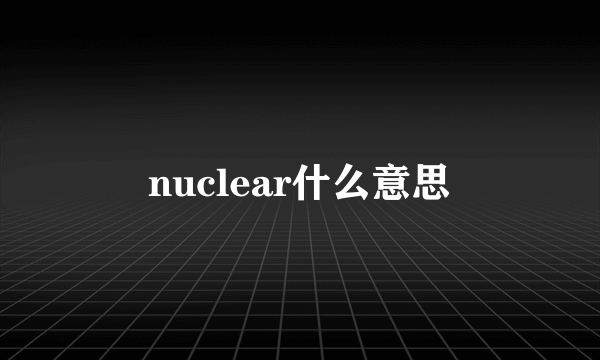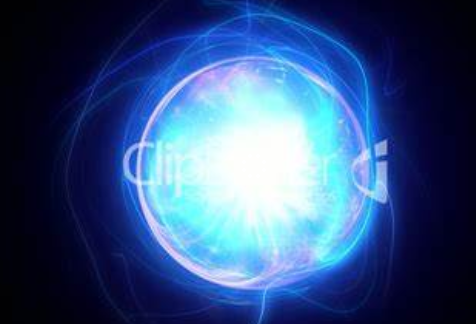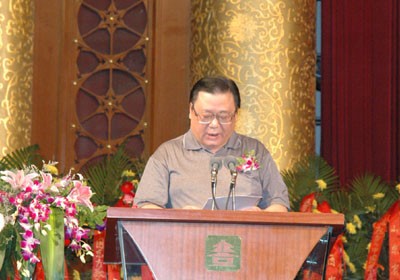What is nuclear energy?
的有关信息介绍如下:
核能源是什么?Nuclear Power, electrical power produced from energy released by controlled fission or fusion of atomic nuclei in a nuclear reaction. Mass is converted into energy, and the amount of released energy greatly exceeds that from chemical processes such as combustion.The first experimental nuclear reactor was constructed in 1942 amid tight wartime secrecy in Chicago, Illinois, in the United States. A prototype reactor was demonstrated at Oak Ridge, Tennessee, in 1943, and by 1945 three full-scale reactors were in operation at Hanford, in Washington State. These were dedicated to plutonium production for nuclear weapons; however, the first large-scale commercial reactor generating electrical power was started up in 1956 at Calder Hall, United Kingdom.Nuclear power is now a well-established source of electricity worldwide. The most common types of reactor are light water reactors, mostly pressurized water reactors (PWRs) together with boiling water reactors (BWRs). Gas-cooled and heavy water reactors make up the rest. Worldwide there are currently about 430 reactors operating in 25 countries providing about 17 per cent of the world’s electricity. Nuclear reactors are also used for propulsion of submarines and ships, and there are a number of prototype and experimental reactors around the world. At present, only a few experimental fusion reactors exist, none of which produce usable amounts of electrical power.Few nuclear power stations are under construction at present, and some have been cancelled when partly built. This is mainly because of long-term resistance from the environmental movement (in particular since the Chernobyl disaster of 1986), but nuclear power stations are also not competitive with natural gas- and coal-fired power stations at present. It is uncertain whether nuclear power generation will increase or decrease worldwide over the next 50 years. However, the very low carbon dioxide emissions from nuclear power stations compared with coal- , gas- , or oil-fired units mean that there is potentially a future expansion in nuclear power driven by the need to control climate change.More than 40 million kilowatt-hours (kWh) of electricity can generally be produced from one tonne of natural uranium. Over 16,000 tonnes of coal or 80,000 barrels of oil would need to be burned to make the same amount of electricity. Moreover, the amount of carbon dioxide produced in generating one kWh of electricity would be 1 kg for coal, 0.5 kg for gas, and only 10 grams for nuclear power.Other than economic factors, the main issues limiting expansion of nuclear power are disposal of radioactive waste (including waste left over from decommissioning of old facilities), radioactivity in liquid effluent and gaseous discharges, security concerns over stockpiled plutonium, and the historical connection with nuclear weapons. Availability of nuclear fuel is unlikely to limit nuclear power production in the foreseeable future.

























